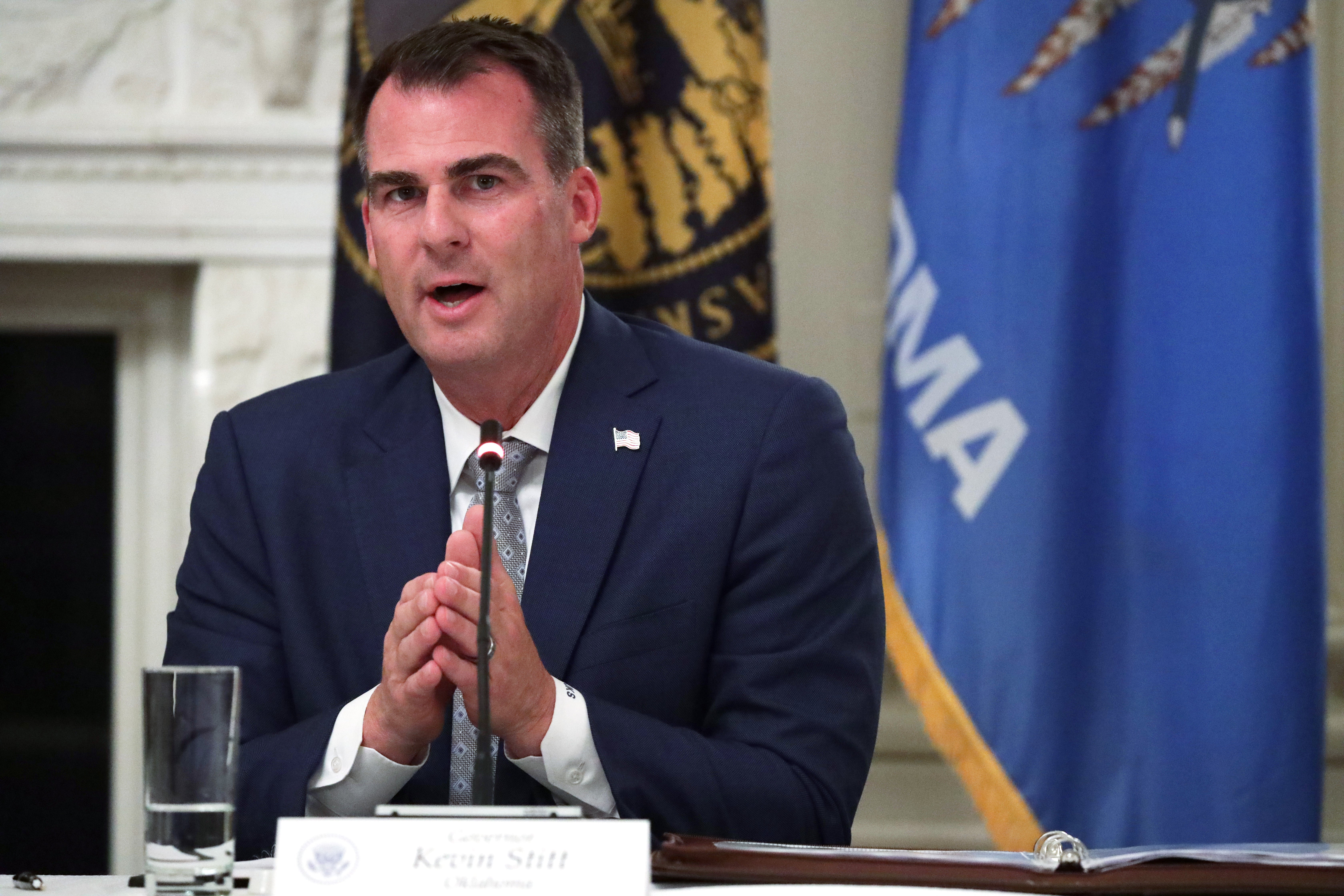Oklahoma Supreme Court shuts down ‘unconstitutional’ taxpayer-funded Catholic school
Republican governor intends to appeal to Supreme Court as GOP officials test church-and-state firewalls
Your support helps us to tell the story
From reproductive rights to climate change to Big Tech, The Independent is on the ground when the story is developing. Whether it's investigating the financials of Elon Musk's pro-Trump PAC or producing our latest documentary, 'The A Word', which shines a light on the American women fighting for reproductive rights, we know how important it is to parse out the facts from the messaging.
At such a critical moment in US history, we need reporters on the ground. Your donation allows us to keep sending journalists to speak to both sides of the story.
The Independent is trusted by Americans across the entire political spectrum. And unlike many other quality news outlets, we choose not to lock Americans out of our reporting and analysis with paywalls. We believe quality journalism should be available to everyone, paid for by those who can afford it.
Your support makes all the difference.The country’s first-ever publicly funded religious charter school is an unconstitutional “slippery slope” infringement of the First Amendment, according to Oklahoma’s Supreme Court.
Last year, a state school board approved the creation of a taxpayer-supported online Catholic school — triggering a high-profile legal battle to decide whether public funds can be used to create religious schools.
On Tuesday, the state’s highest court said the contract violates the state constitution as well as the First Amendment of the Constitution.
“The framers’ intent is clear,” the court’s majority wrote. “The State is prohibited from using public money for the ‘use, benefit or support of a sect or system of religion.’”
The school is an “instrument of the Catholic church, operated by the Catholic church, and will further the evangelizing mission of the Catholic church in its educational programs,” justices wrote.
Enforcing the contract would “create a slippery slope and what the framers’ warned against — the destruction of Oklahomans’ freedom to practice religion without fear of governmental intervention,” they added.
Oklahoma’s Attorney General Gentner Drummond, who sued the Republican-appointed board to block the school’s creation after warning that it obviously violated the Constitution and would draw costly litigation, called Tuesday’s decision “a tremendous victory for religious liberty.”
“Now Oklahomans can be assured that our tax dollars will not fund the teachings of Sharia Law or even Satanism,” he said in a statement.
Republican Governor Kevin Stitt, however, said he is “disappointed” with Drummond and that the court’s ruling “sent a troubling message that religious groups are second-class participants in our education system.”
“Charter schools are incredibly popular in Oklahoma — and all we’re saying is: we can’t choose who gets state dollars based on a private entity’s religious status,” he said in a statement shared with The Independent.
He intends to appeal to the Supreme Court.

The board’s creation of St. Isidore of Seville Catholic Virtual School arrived as GOP officials and right-wing groups across the country lured opponents into courtroom battles in the hopes of dismantling the church-and-state firewall.
Another brewing federal court battle targets Louisiana’s first-in-the-nation law requiring the Ten Commandments in every public school classroom.
A coalition of civil rights groups that sued Oklahoma and Louisiana applauded Tuesday’s ruling.
“Charter schools are public schools that must be secular and serve all students,” they said in a statement shared with The Independent. “St. Isidore of Seville Catholic Virtual School, which plans to discriminate against students, families, and staff and indoctrinate students into one religion, cannot operate as a public charter school.”
In 2022, the nation’s highest court ruled that the state of Maine cannot exclude private Christian schools from a taxpayer-funded school voucher program that helps students attend private schools.
In her dissent, Justice Sonia Sotomayor wrote that the Supreme Court “continues to dismantle the wall of separation between church and state that the Framers fought to build.”
“The consequences of the Court’s rapid transformation of the Religion Clauses must not be understated,” she wrote, issuing a warning that the court is undermining core First Amendment protections that prevent the government from imposing religious views.

Join our commenting forum
Join thought-provoking conversations, follow other Independent readers and see their replies
Comments